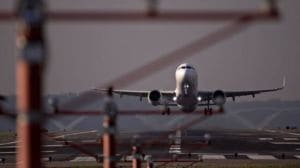Idle flight engineers pushing 50: let’s make them pilots, says IA
Indian Airlines has in the past been accused of persisting with ageing aircraft. Now it’s inviting the charge of continuing with ageing...

Indian Airlines has in the past been accused of persisting with ageing aircraft. Now it’s inviting the charge of continuing with ageing pilots: under a new scheme, redundant staff, some as old as 50, are being trained to fly planes.
This may sound a joke in a country where much of the population is below the age of 25. But IA Chairman and Managing Director Sunil Arora says they had no option. They had to rehabilitate these employees, trained as flight engineers for Airbus 300, who have been without work after the grounding of the aircraft.
A batch of four such employees is currently undergoing basic training at Indira Gandhi Rashtriya Udaan Academy in Rae Bareli. Each will graduate with a commercial pilot’s licence in March, 190 hours of training behind him.
While IA rules allow pilots to fly, if medically fit, till age 68, inducting them at 50, or nearabouts, must be a record of sorts in aviation history.
There is also the question of money. IA will spend upto Rs 55 lakh on each pilot, for six-eight years of flying before he retires. In case of new pilot entrants, IA recovers the money it spends through deductions from salary. But here, in the case of these four pilots, there is no such programme.
The ‘‘youngest’’ of the four is 1957-born A K Soni. He turned 48 this year, but will be ready to fly passengers two years later after undergoing advance training in Hyderabad. The three other trainee pilots are K K Rao (born in 1955), Simon Rajan (1954) and Y K Singh (1954).IA’s new trainee pilots are 50 years ‘young’
‘‘They served as flight engineers in IA for 25 years. They were navigational engineers for the fleet of Airbus 300 which was grounded in 2002. They belong to a dying cadre, so we decided to rehabilitate them as pilots,’’ says Arora. A memorandum to this effect was signed in January 2002.
There are 33 such flight engineers in all. The oldest, Venkataraman, was born in 1944. He did not opt for rehab as he was about to retire. Seven other flight engineers too opted out for the same reason.
After the current batch of four, another group will arrive for the 18-month-long course at the Indira Gandhi Academy. Later, they will go to Hyderabad to train on A-320 passenger aircraft.
The new breed of pilots is likely to rub shoulders with their younger counterparts by 2006. They will fly a plane for five-six years and then retire at age 60.
Is it fair to invest so much money in training people who will retire in less than a decade? Arora has a counter: ‘‘Is it appropriate to pay them their salary without engaging them in some activity?’’
Arora assures the age factor is no cause for worry: ‘‘It isn’t that simple. The flight engineers will go through the rigours of pilot training and will be entitled to fly only after they are certified as commercial pilots by the Indira Gandhi Academy.’’
Photos


- 01
- 02
- 03
- 04
- 05





























